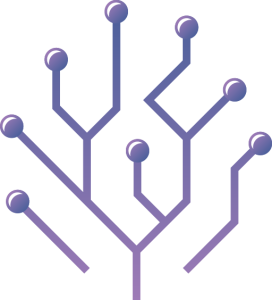How Ametisa Helps
The use of cloud technologies turns ordinary digital solutions into cost-effective ones. We have extensive experience in creating and implementing cloud technologies in existing systems, customizing them to the needs of a particular business and ensuring their uninterrupted use, support and scaling. This increases the efficiency of your project, improves the use of your software, reduces your development costs, and helps you become more agile to face new challenges every day! Whether you’re owning enterprise or small business, cloud technologies will always be handy to you.
Our Cloud Application Development Services
- Cloud-Based Application Development
- Cloud Migration Services
- Cloud Integration Services
- Cloud Consulting Services
Cloud-Based Application Development
Incorporating automation and a standardized methodology into the validation process of your workflows is one of the most important features in implementing cloud technologies to achieve your goals. This gives you results that you would otherwise have to achieve with much more difficulty.
Cloud Migration Services
Providing cloud compatibility for your applications is what your business needs to stay ahead of your competition. We specialize in this service and thoroughly check which applications need to be updated and which ones should be archived if they cannot be updated.
Cloud Integration Services
To truly benefit from the compatibility of your applications with the cloud, it is very important to ensure that data and processes are synchronized between the cloud and your software in a timely manner. And when your business grows, it becomes a decisive factor in order to remain market leaders.
Cloud Consulting Services
In addition to ensuring the performance of your systems, we offer you advice on strategy design and development of integrated services to ensure that your interaction with us and with cloud services is as convenient, profitable and in line with the most advanced trends in technology and the market.
Why innovate your business with Ametisa
Consistent high-quality results with robust agile teams and dedicated QA practices

Highly cost-effective and best-of-breed solutions with no last minute surprises

Transparent project management with maximum adherence to deadlines
faq
Cloud-based software or cloud application is an internet-based program and its servers are present in a remote datacenter and can be accessed via a web browser or mobile application with an uninterrupted internet connection.
Cloud computing services can be classified based on the location or type of service offered.
Based on location, the cloud can be classified into public, private, hybrid or community cloud.
Public cloud: When a cloud is termed public, it means that the entire cloud computing infrastructure is away from the customer and located on the premises of a third-party cloud computing company. Public cloud offers exceptional performance but is prone to attacks and vulnerabilities.
Private Cloud: When a cloud is termed private, it means that the customer is employing a private and dedicated server that is not shared with others. It can be remotely located or maintained on-premise. Private cloud offers the highest level of security and control, but is an expensive option.
Hybrid Cloud: This uses a combination of private and public clouds, as per the purpose.
Community Cloud: A community cloud is shared between organizations or governments that are united by a common purpose.
Based on the type of service offered, cloud computing services can be:
SaaS: Software-as-a-Service is a method of availing fully-developed software applications over the internet on a subscription basis while resting the responsibilities of maintenance, support, and operations with the cloud provider. Mostly available through web browsers, SaaS apps eliminate the need for installations or downloads, and can be used by customers as and when they need them.
IaaS: Infrastructure-as-a-Service allows companies to rent out a completely virtualized computing infrastructure from a cloud provider, and fully customize it as per their specific needs. These virtualized resources include servers, virtual machines, networks, operating systems, and storage space. IaaS helps start-ups and small companies scale as per the demand, thereby slashing their infrastructure costs.
PaaS: Platform-as-a-Service provides developers the frameworks and tools to build and host their software applications, without having to worry about the underlying infrastructure or costs associated with purchasing each one of them. Available over the internet, PaaS helps developers access the assets remotely, speed up development, and get to market faster than their competitors.
The primary benefits of cloud computing include: reducing of costs, scalability, mobility, real-time collaboration, control over data and disaster recovery option.
A hybrid cloud refers to a computing environment where public and private clouds are used in unison by sharing data and apps between them. It gives businesses the agility to employ a public cloud for improved computing power and flexibility, while keeping sensitive workloads hosted on a private cloud, behind a firewall.
Cloud-based service is the practice of using a host of remote servers over the internet to store, manage, and compute data on an on-demand basis. Usually, companies take charge for using such services.
Cloud computing is defined as the usage of hardware and software to deliver computing services such as networking, software, databases and more, over the internet. It basically is a metaphor for the internet.
Our Unique Approach & Process
By initiating your project with Ametisa, you get a dedicated and skilled team backing you up round-the-clock. All our processes are customer-oriented, designed to reduce the cost of business operations, address IT resourcing challenges, and offer you a competitive edge. We start with a deep analysis of your requirements and continue our relationship with post-launch support and updates.
